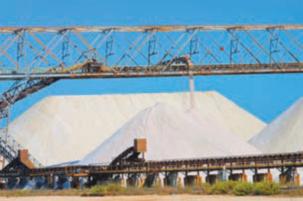At the beginning of the nineteenth century, high overland transportation costs protected salt producers from competition with
Question:
At the beginning of the nineteenth century, high overland transportation costs protected salt producers from competition with one another, generating local salt monopolies. Over the course of the nineteenth century, decreases in overland transportation costs increased competition between salt producers and decreased prices. In response to the increased competition, salt producers colluded by forming salt pools, enterprises that set a uniform price and distributed the salt of all participating producers. Some pools established output quotas or paid firms not to produce salt for a year, a practice known as “deadrenting” a salt furnace. Every salt pool eventually broke down, usually within a year or two of its formation. In some cases, individual firms cheated on the cartel by selling salt outside the cartel. In other cases the artificially high price caused new firms to enter the market and underprice the salt pool.

Question.
Why do cartels sometimes fail to keep prices high?
Step by Step Answer:

Microeconomics Principles Applications And Tools
ISBN: 9780134078878
9th Edition
Authors: Arthur O'Sullivan, Steven Sheffrin, Stephen Perez





